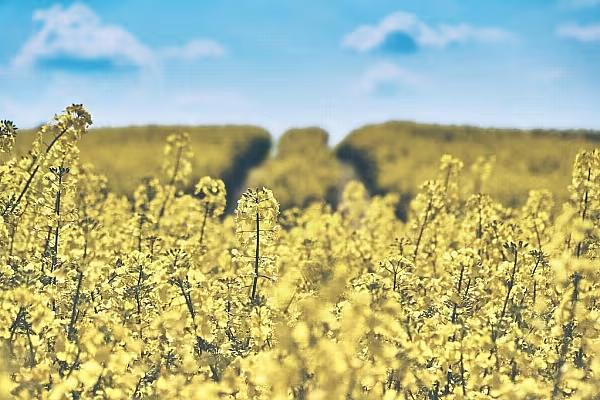Rapeseed harvesting has started in the European Union with the market expecting a small crop like last year, though recent rain could boost yields after a tough growing season.
Crops have endured torrential autumn rain, insect pressure after a mild winter and a very dry start to spring.
The adverse conditions have led analysts to project rapeseed production in the EU plus Britain to be in line with or slightly below last year's crop of 17 million tonnes, which was the smallest since 2006.
Rapeseed is the most produced oilseed in Europe and used to make edible oil, livestock feed and biodiesel fuel.
Modest Harvest
In France, where harvesting is in full swing, production is forecast by the farm ministry at 3.4 million tonnes, nearly 4% smaller than an already modest 2019 harvest and almost 30% below the five-year average.
"It's going to be a small crop in line with expectations," one trader said. "Yields are very mixed, and when you have such contrasts from one area to the next you rarely get a big crop."
The British harvest is under way, with damage from cabbage stem flea beetles threatening to curb production further after a steep fall in sowing during a soggy autumn.
'Large Variation In Yields'
"Early indications show large variation in yields from below one tonne per hectare to over three tonnes per hectare, depending on region," said Anthony Speight, analyst at the Agriculture and Horticulture Development Board.
In Germany and Poland, however, rainfall in recent weeks could improve yields and help to lift production from last year's level.
Poland's rapeseed crop could reach between 2.75 million and 2.8 million tonnes, up 3-4% on last year assuming average yields, said Wojtek Sabaranski of analysts Sparks Polska.
'Good Yields'
"First harvest reports indicate good yields and high oil content above 43%."
Widespread rain in Germany in the past two weeks was positive for rapeseed yields, but a return of dry, sunny weather was urgently needed with the harvest starting, Germany's farm cooperatives association said.
"If rain falls on ripe pods, they can burst and the rapeseed can fall out before it can be harvested," the association said.
It forecast on Wednesday that the country's main winter rapeseed crop will rise 13.7% from last year's poor harvest to 3.21 million tonnes.














